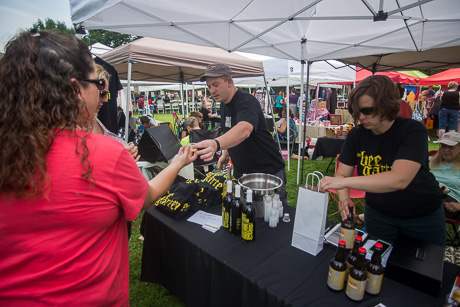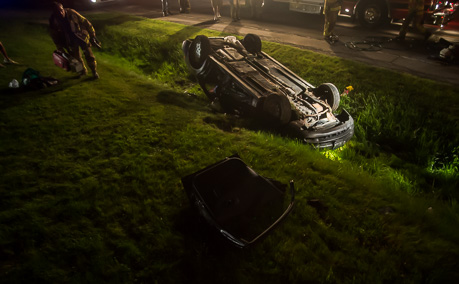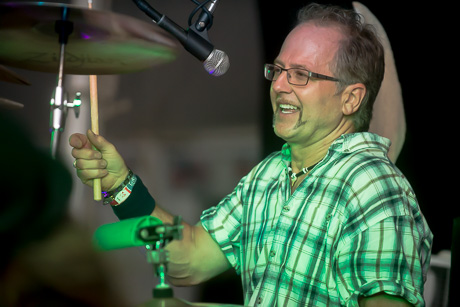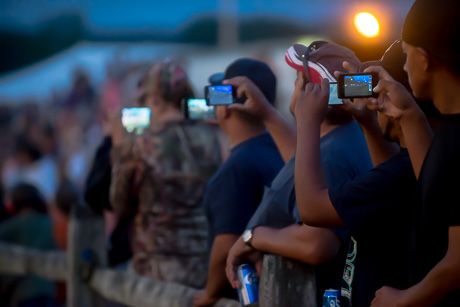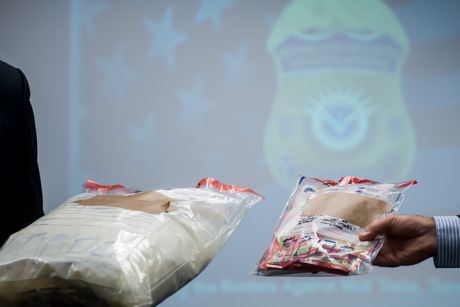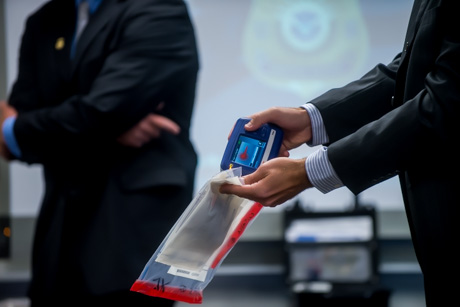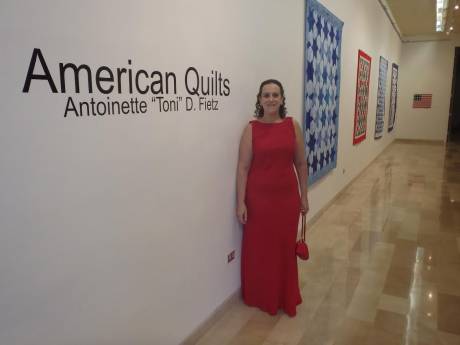While incidents involving apparent synthetic-drug use in Genesee County have dropped dramatically since the closure of the 420 Emporium, on Ellicott Street, in July 2012, the use of drugs created in clandestine overseas labs to mimic more common street narcotics is still an issue locally, according to officials.
A federal agent revealed in a press briefing in Buffalo today that there are "a couple" of ongoing investigations in Genesee County into the sale and distribution of Flakka (aka Alpha-PVP).
"The investigations involve Genesee County people," said Special Agent Brad Brechler, with Homland Security, but he offered no further details.
Brechler and Special Agent Frank Zabawa conducted a briefing for a few members of WNY media in Buffalo today to discuss what they're seeing in the region regarding synthetic drugs and how federal authorities are responding.
The issue is much bigger in Buffalo and Niagara County than it is in Batavia, a point seemingly underscored by Brechler when pointing out that the first arrest in WNY for the sale and transportation of Alpha-PVP was in Genesee County in January 2013, but in that case the two suspects were from the Steuben and Niagara counties, not Batavia, and there was no suspicion in that case of the drugs being sold locally. Batavia was just a convenient meeting place for dealer and distributor, Brechler said.
Greg Walker, head of the Local Drug Task Force, said in a separate interview today that the task force has not been involved in the current federal investigation into the local sale of Alpha PVP, but he said there have been recent indications of synthetic drugs in and around Batavia, such as deputies coming across subjects with medical conditions that suggested chemical injection of some type or subjects behaving strangely.
It's not been common or widespread by any means, Walker said.
Flakka is described in media reports as a potent hallucinogen that officials consider addictive and dangerous.
The primary country of origin appears to be China, the agents said, and that's a trade the Chinese government is doing little to stem.
"The Chinese say one of their main industries is researching chemicals for the world," Brechler said. "Until a drug is illegal in their country, they're not interested in doing anything about it."
The drug is easily obtainable over the Internet. Often, the Chinese drug manufacturers will provide U.S. dealers with Web sites, and when federal authorities seize a drug-trade Web site, the Chinese companies will have a new Web site with a new domain name set up for the same dealer in a matter of days.
Online ordering, however, does not necessarily translate into widespread sales to users.
Most online sales go to distributors.
Users tend to be cautious about getting purchases traced back to them and most distributors require a minimum order of 25 grams, Brechler said.
That would cost from $300 to $350, a steep price for an addict.
Those 25 grams have tremendous street value, however. A gram typically sells for $80 to $120, making 25 grams worth at least $2,000.
"The drug is so addictive, you will see people hosting house parties and just giving it away," Brechler said.
Dealers also convince their buyers that it takes a special connection in China to get the drugs.
"Some users don't realize how easy it is to get," Brechler said.
Flakka is now a controlled substance, but that doesn't make it any easier to detect when it's coming into the country. The favored port of entry is the JFK Airport because JFK deals with the highest volume of overseas mail. It's easier to slip a package through just because of the massive amount of mail officials must sort through.
Drug-sniffing dogs won't detect it and the package sizes tend to be small.
As part of an investigation, agents purchased a supply of synthetic drugs from a Chinese company and it arrived with four large pills inside. Three pills were benign chemicals and one contained the drugs, but agents e-mailed the distributor to ask which pill was their order.
"Your drugs are in the blue pill," was the reply.
"The Chinese are open about it in their e-mails," Brechler said. "Some of the more sophisticated dealers in the U.S. use coded communications, but they don't always use code and talk about it openly because of the gray area legally of drug analogs."
Synthetic drugs are illegal either because they've been identified as controlled substances, or their chemical make up is clearly intended to mimic a controlled substance. Those are known as analogs and are governed by another set of laws.
Because synthetic drugs are changing constantly and are easy to distribute and hard to detect, one of the most important responses to the drug isn't enforcement, the agents said, it's education.
Homeland Security provides bar owners, schools and concert venues information on how to recognize a possible overdose on a synthetic drug and how to provide immediate treatment until medical professionals arrive.
There was no indication from the agents when and if arrests will be made in connection with the local investigations.
Top Photo: the agents hold recently seized drugs. Bottom photo, an agent demonstrates a device that can detect synthetic drugs. It uses a laser that can detect the chemical makeup of a substance inside a bag so the agents do not need to open the bag and risk their health and safety. The device can only identify a substance already in the federal database of chemical compounds that are controlled substances or analogs, otherwise, the device reports an "inconclusive" test.




